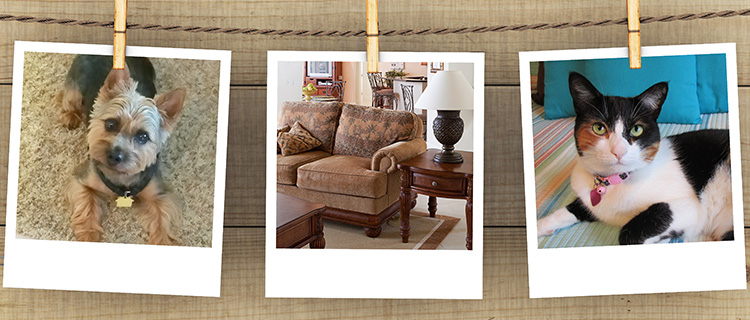WELCOME BACK as we continue with our 5-Part Series on the safest practices for Pet Proofing Your Home… Let’s face it, as one of the 80 million households in the Unites States who cohabitants with a Furry Friend, we work very hard keeping our buddies happy and healthy. Doing this, we also spent in excess of $60 billion this past year, according to the 2015-2016 APPA National Pet Owners Survey.
Below are some of the most unusual items dogs and cats have swallowed and the cost of removing them, according to American Kennel Club (AKC®) pet healthcare provider, PetPartners, Inc.
Dogs
Toy: $669
Sock: $1,173
Golf Balls: $1,844
Dental Floss: $3,590
Loose Change: $1,018
Cats
Toy Ball: $1,454
Hair Band: $1,505
Some Good Old Common Sense: You can easily eliminate most potential problems by keeping small objects and items that can easily be eaten or swallowed out of their way. As for other dangers, just look around from your pet’s point of view and see what objects might be tempting and troublesome. Just like you would baby-proof a home, the same is true for pet proofing.
Hazards in the Bathroom and Laundry Room
- Medications that treat human medical conditions can make pets very sick. Never give your pet any medication unless directed by your veterinarian. As a rule, the following medicines should be tightly closed and stored in a secure cabinet above the counter and away from pets:
- Non-steroidal anti-inflammatory drugs such as aspirin, ibuprofen, naproxen, acetaminophen, diet pills, antihistamines, cold medicines, vitamins, and antidepressants
- Bath and hand soaps, toothpaste and sunblock should also be kept away from your pets. They can cause stomach upset, vomiting or diarrhea.
- Toilet bowl water that has been treated with chemical cleaners can irritate the digestive tract. Therefore, keep toilet lids closed.
- Sinks and tubs filled with water and left unattended can pose a drowning hazard for small pets.
- Dental floss can be dangerous if eaten or swallowed. Dental floss is made to be extremely strong to withstand hard tugging and pulling when used to floss your teeth. Unfortunately, those same properties make it almost indestructible and it does not dissolve or digest when swallowed. As a matter of fact, dental floss is so strong that it can actually cause lacerations or strangulation to an animal’s intestinal tract.
- Cleansers, detergents, fabric softeners and bleach are obvious hazards.
- Washers and dryers can be a tempting spot for a nap, especially for cats. Keep the doors on appliances closed at all times.
WHAT TO DO IF YOUR PET IS POISONED?
Don’t wait! Time is critical for successfully treating accidental poisoning. Call your Vet or the ASPCA Animal Poison Control Center at 888-426-4435. Be prepared to state your dog’s breed, age, weight and any symptoms. Have the product container or plant sample nearby to assist with identification so the appropriate treatment recommendations can be made.
Don’t forget about the Humane Society of the Nature Coast Fund-Raiser Event, the 13th Annual Fur Ball on Sept. 17th, being held at Silverthorn Country Club. As one of the event’s main sponsors, I hope to see YOU there!
We hope you found this post to be helpful, informative and interesting… Watch for our next BLOG POST on September 8th as we continue our 5-Part Series on Pet Proofing Your Home. To learn more about Tampa Bay area homes for sale in Spring Hill and Brooksville, located in Hernando County, Florida, visit us at www.GailSellsFloridaHomes.com… Be sure to check out our custom, state-of-the-art, MLS Map Search Feature, which you’ll find to be fully functional on any and all of your devices!
Until then… it’s all about YOU!

